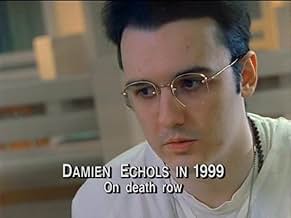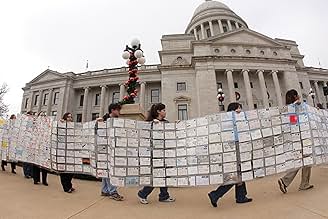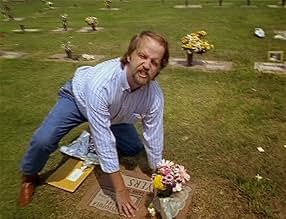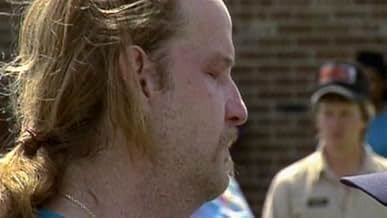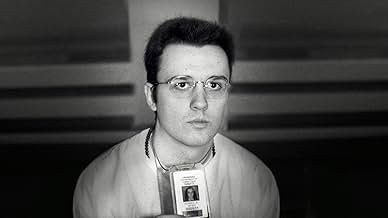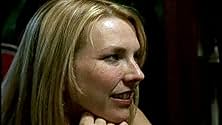The case of the West Memphis Three, its questionable circumstances and the parties involved are followed up years later.The case of the West Memphis Three, its questionable circumstances and the parties involved are followed up years later.The case of the West Memphis Three, its questionable circumstances and the parties involved are followed up years later.
- Nominated for 1 Primetime Emmy
- 2 wins & 1 nomination total
Melissa Byers
- Self
- (archive footage)
Tim Sullivan
- Self
- (archive sound)
Jessie Misskelley
- Self
- (as Jessie Miskelly)
Featured reviews
Paradise Lost 2: Revelations picks up just a few years after the original documentary, Paradise Lost: The Child Murders at Robin Hood Hills. During that documentary, we were informed massively about the murders and mutilation of three second graders on May 5, 1993 in West Memphis, Arkansas. The three convicted seemed to be judged by a shady, flawed confession by one of the men and their personal appearances and interests.
This is not only a sequel to a fantastic documentary, but it's a documentary that sheds light on something very, very frightening; a biased judicial system that reacts on present emotions, unclear evidence (when there hardly is any), and the personalities of the accused. It seemed that the three men were judged more on their likes and interests more than the actual murder. The three men are Damien Echols, now 24, Jessie Misskelley Jr., now 23, and Jason Baldwin, now 21.
The focus seems less on them and more on the smaller characters incorporated in the large story and the backlash and uproar the original HBO film caused. In the beginning of the documentary, we are acquainted with a local support group made up of people from all over the United States who saw the original Paradise Lost documentary, were outraged, and started their own support club. Three brave adults even came up with the idea to start a website in support of the nicknamed "West Memphis Three" (a surprising thing since internet was still pretty new and vague at the time).
The three people behind the website are shown at numerous points in the film accepting collect calls from prison from Damien Echols and holding a live, somewhat informal chat through their website. Damien is on speakerphone, people in the chat room ask him questions, and another writes down Damien's spontaneous responses as quickly as possible.
John Mark Byers, the stepfather to Christopher Byers, one of the three boys mutilated in the woods, is brought to the foreground here. He has got to be one of the most unsettling, eerie, and vicious documentary characters I've ever seen. He speaks in the southern twang you can't ignore, and his six foot eight presence equipped with his strong, muscular build is astonishing. Although he appears to be an upset father about the death of his son, he copes with his anger in a mean-spirited, hateful way. In one scene he goes as far as setting up fake graves for Baldwin, Echols, and Misskelley Jr. and proceeds to douse the graves with lighter fluid before striking a match and incinerating it all.
Byers is suspected in being involved in the murders of the three kids, and is victim to much gossip. On one of the boys, I believe Stevie Branch, but I could be wrong, there appears to be a bite mark. The prosecution insists it's a belt buckle imprint, but it impeccably resembles a purposeful bite mark. Oddly enough a few years after the original film's completion, Byers' wife, Melissa, died of "undetermined" circumstances.
Again, despite noted limitations present in the film, directors Joe Berlinger and Bruce Sinofsky seem to have an unprecedented amount of access to everything case related. Sadly, because of the notoriety of the original Paradise Lost, the film has a few more limitations than the first one did. There are some instances where the film goes to a black title card saying Berlinger and Sinofsky were not allowed to film in the designated area at the designated time. Still, the video we do see is provocative, astounding, and shows us more than one may believe.
Paradise Lost: The Child Murders at Robin Hood Hills was a strong, turning point in documentary filmmaking because of its unbiased nature and its attitude to "show it all." Paradise Lost 2: Revelations is an impressive and well made documentary as well and it has the power to sway our opinions of the case itself and/or drastically change them. All I can say at this point is that hopefully we find a paradise, and it's not as hokey and as gray at the one that has been endured for far too long by these boys.
Starring: Damien Echols, Jessie Misskelley Jr., and Jason Baldwin. Directed by: Joe Berlinger and Bruce Sinofsky.
This is not only a sequel to a fantastic documentary, but it's a documentary that sheds light on something very, very frightening; a biased judicial system that reacts on present emotions, unclear evidence (when there hardly is any), and the personalities of the accused. It seemed that the three men were judged more on their likes and interests more than the actual murder. The three men are Damien Echols, now 24, Jessie Misskelley Jr., now 23, and Jason Baldwin, now 21.
The focus seems less on them and more on the smaller characters incorporated in the large story and the backlash and uproar the original HBO film caused. In the beginning of the documentary, we are acquainted with a local support group made up of people from all over the United States who saw the original Paradise Lost documentary, were outraged, and started their own support club. Three brave adults even came up with the idea to start a website in support of the nicknamed "West Memphis Three" (a surprising thing since internet was still pretty new and vague at the time).
The three people behind the website are shown at numerous points in the film accepting collect calls from prison from Damien Echols and holding a live, somewhat informal chat through their website. Damien is on speakerphone, people in the chat room ask him questions, and another writes down Damien's spontaneous responses as quickly as possible.
John Mark Byers, the stepfather to Christopher Byers, one of the three boys mutilated in the woods, is brought to the foreground here. He has got to be one of the most unsettling, eerie, and vicious documentary characters I've ever seen. He speaks in the southern twang you can't ignore, and his six foot eight presence equipped with his strong, muscular build is astonishing. Although he appears to be an upset father about the death of his son, he copes with his anger in a mean-spirited, hateful way. In one scene he goes as far as setting up fake graves for Baldwin, Echols, and Misskelley Jr. and proceeds to douse the graves with lighter fluid before striking a match and incinerating it all.
Byers is suspected in being involved in the murders of the three kids, and is victim to much gossip. On one of the boys, I believe Stevie Branch, but I could be wrong, there appears to be a bite mark. The prosecution insists it's a belt buckle imprint, but it impeccably resembles a purposeful bite mark. Oddly enough a few years after the original film's completion, Byers' wife, Melissa, died of "undetermined" circumstances.
Again, despite noted limitations present in the film, directors Joe Berlinger and Bruce Sinofsky seem to have an unprecedented amount of access to everything case related. Sadly, because of the notoriety of the original Paradise Lost, the film has a few more limitations than the first one did. There are some instances where the film goes to a black title card saying Berlinger and Sinofsky were not allowed to film in the designated area at the designated time. Still, the video we do see is provocative, astounding, and shows us more than one may believe.
Paradise Lost: The Child Murders at Robin Hood Hills was a strong, turning point in documentary filmmaking because of its unbiased nature and its attitude to "show it all." Paradise Lost 2: Revelations is an impressive and well made documentary as well and it has the power to sway our opinions of the case itself and/or drastically change them. All I can say at this point is that hopefully we find a paradise, and it's not as hokey and as gray at the one that has been endured for far too long by these boys.
Starring: Damien Echols, Jessie Misskelley Jr., and Jason Baldwin. Directed by: Joe Berlinger and Bruce Sinofsky.
There are a couple of ignorant comments that I wanted to address from other posters here. Firstly, The individual who stated that the filmmakers spent the most time on screen was totally wrong, as the filmmakers NEVER appeared on camera. I think this person was referring to the group that was dedicated to freeing the "West Memphis Three." These were just more characters in the story, not the filmmakers. Also, another person pointed out that the polygraph test as if it were indisputable proof that the step-father had not done this crime. I don't agree. 1.He was taking alot of drugs, not to mention he was obviously mentally challenged. 2. right before he took the test, he was obviously lying about a great deal of things (he said he never had trouble with the law, he said he did not know how his wife died, and in the very next sentence referred to the "murder" of his wife, etc.)3. he had spent a great deal of time convincing everyone and himself that he had not done it, that he may just have believed it. Now, He may or may not have been responsible, I am not going to try and convince anyone, but at least pay attention when making your decisions. It just doesn't make sense to me that those boys did this when you look at the evidence. The first film did a better job of presenting the case than this one, but part two is a great continuation of the case. It would have been pointless to cover too much old ground. So if you are able to find part one anywhere, or it comes on HBO again, watch it if you have not.
Okay. Mark Byers is a wing-nut. So what. Documentary #1: Documents a witch hunt. No question. I'm totally on board. New trial - let's go. Documentary #2: Perpetrates a witch hunt. Drips with unintentional irony. That people can be put away for life and lethal injection based on no physical evidence or common sense even is chilling. That a documentary (and the convicted themselves) can then come along and blithely point fingers, also with no evidence, is no less chilling. And who ARE these Internet activist people? Do they have jobs or what? They are as asinine and loopy as Byers. The filmmakers should have just left it at film #1 and been done with it. But the awards and following went to their heads and they decided to crusade. Ugh.
Damien Echols, Jessie Misskelley, Jr., and Jason Baldwin were convicted in 1994 for the murder of three boys in West Memphis, Arkansas. It's 1999 and Damien has his final appeal in front of Judge David Burnett. The popularity of the original documentary has inspired support group, Free the West Memphis Three. Cameras are no longer allowed in the court. Of the victims' family, only John Mark Byers is cooperating with the filmmakers and he has a lot to say. He also has had a lot of legal problems. His wife died in 1996. He takes a lie detector test in front of the camera. The defense team seems to be concentrating on bite marks on the boys.
Byers is a big part of this follow-up. He's a very odd character and the movie is trying to make him suspicious. It's a lot of innuendos. Without being able to film the court proceedings, this is left without its main narrative. It becomes obviously one-sided. The support group adds very little to overwhelming need of this sequel. It needs to solve the murders or get the West Memphis Three out. This achieves neither. This could have been a shorter film to update the situation.
Byers is a big part of this follow-up. He's a very odd character and the movie is trying to make him suspicious. It's a lot of innuendos. Without being able to film the court proceedings, this is left without its main narrative. It becomes obviously one-sided. The support group adds very little to overwhelming need of this sequel. It needs to solve the murders or get the West Memphis Three out. This achieves neither. This could have been a shorter film to update the situation.
Generally riveting follow up of the case where three quite possibly innocent young men sit in prison for murdering three children.
Certainly, at least given what the two documentaries show, there is way beyond 'reasonable doubt' that they're responsible. But what was a moderate flaw in the first film becomes worse here; In the same way the prosecution disturbingly made the evidence fit their theory, throwing out, ignoring, or belittling what didn't fit, the film-makers seem to play some of the same game in reverse.
Crucial questions about alibis are never answered, and this sequel spends too much energy trying to pin guilt on Mark Byers, step-father of one of the murdered boys.
Is there some spooky circumstantial evidence that he may have been involved? Absolutely. But proof? The man even voluntarily takes a lie detector test, and passes with flying colors, which the film- makers then dismiss since the man is on various prescription mood altering drugs. But do we ever hear an expert say those drugs might affect the test? No.
More disturbing, the film seems to imply he's guilty because he looks and acts weird, and says confusing and contradictory things, the very sort of 'guilt by odd behavior' association both films attack in relation to the three boys found guilty. The fact that Byers (supposedly) has a brain tumor, and what effect that might have on his outward behavior is never explored at all. And watching this character at such length starts to get dull after a while, as his rants go on and on.
None-the-less, this is still a very interesting film, the most moving sections being those spent with the three now young men in jail for a crime they likely didn't commit. All have grown up a great deal in the 4 years since the last film, and are sad and articulate reminders of how horrifying it can be that people never given the benefit of a fair trial are allowed to sit and rot in prison. And the amazing lack of despair or bitterness they show is a testament to human resilience.
Certainly, at least given what the two documentaries show, there is way beyond 'reasonable doubt' that they're responsible. But what was a moderate flaw in the first film becomes worse here; In the same way the prosecution disturbingly made the evidence fit their theory, throwing out, ignoring, or belittling what didn't fit, the film-makers seem to play some of the same game in reverse.
Crucial questions about alibis are never answered, and this sequel spends too much energy trying to pin guilt on Mark Byers, step-father of one of the murdered boys.
Is there some spooky circumstantial evidence that he may have been involved? Absolutely. But proof? The man even voluntarily takes a lie detector test, and passes with flying colors, which the film- makers then dismiss since the man is on various prescription mood altering drugs. But do we ever hear an expert say those drugs might affect the test? No.
More disturbing, the film seems to imply he's guilty because he looks and acts weird, and says confusing and contradictory things, the very sort of 'guilt by odd behavior' association both films attack in relation to the three boys found guilty. The fact that Byers (supposedly) has a brain tumor, and what effect that might have on his outward behavior is never explored at all. And watching this character at such length starts to get dull after a while, as his rants go on and on.
None-the-less, this is still a very interesting film, the most moving sections being those spent with the three now young men in jail for a crime they likely didn't commit. All have grown up a great deal in the 4 years since the last film, and are sad and articulate reminders of how horrifying it can be that people never given the benefit of a fair trial are allowed to sit and rot in prison. And the amazing lack of despair or bitterness they show is a testament to human resilience.
Did you know
- TriviaThe only film of the trilogy to be a TV project instead of receive a theatrical release.
- GoofsAt one point the on-screen date for a trial scene is listed as January of 1993. The murders didn't occur until May of that year.
- SoundtracksWelcome Home (Sanitarium)
Performed by Metallica
Written by James Hetfield, Lars Ulrich, and Kirk Hammett
Produced by Flemming Rasmussen with Metallica
Details
- Release date
- Country of origin
- Language
- Also known as
- Revelations: Paradise Lost 2
- Filming locations
- Production companies
- See more company credits at IMDbPro
- Runtime2 hours 10 minutes
- Color
Contribute to this page
Suggest an edit or add missing content

Top Gap
By what name was Paradise Lost 2: Revelations (2000) officially released in Canada in English?
Answer


